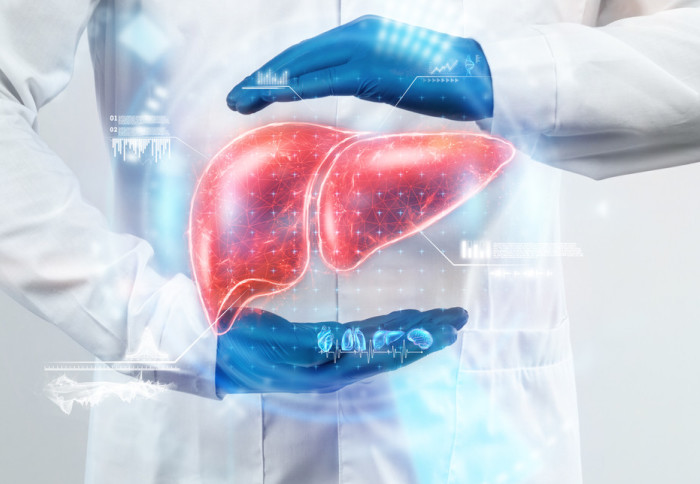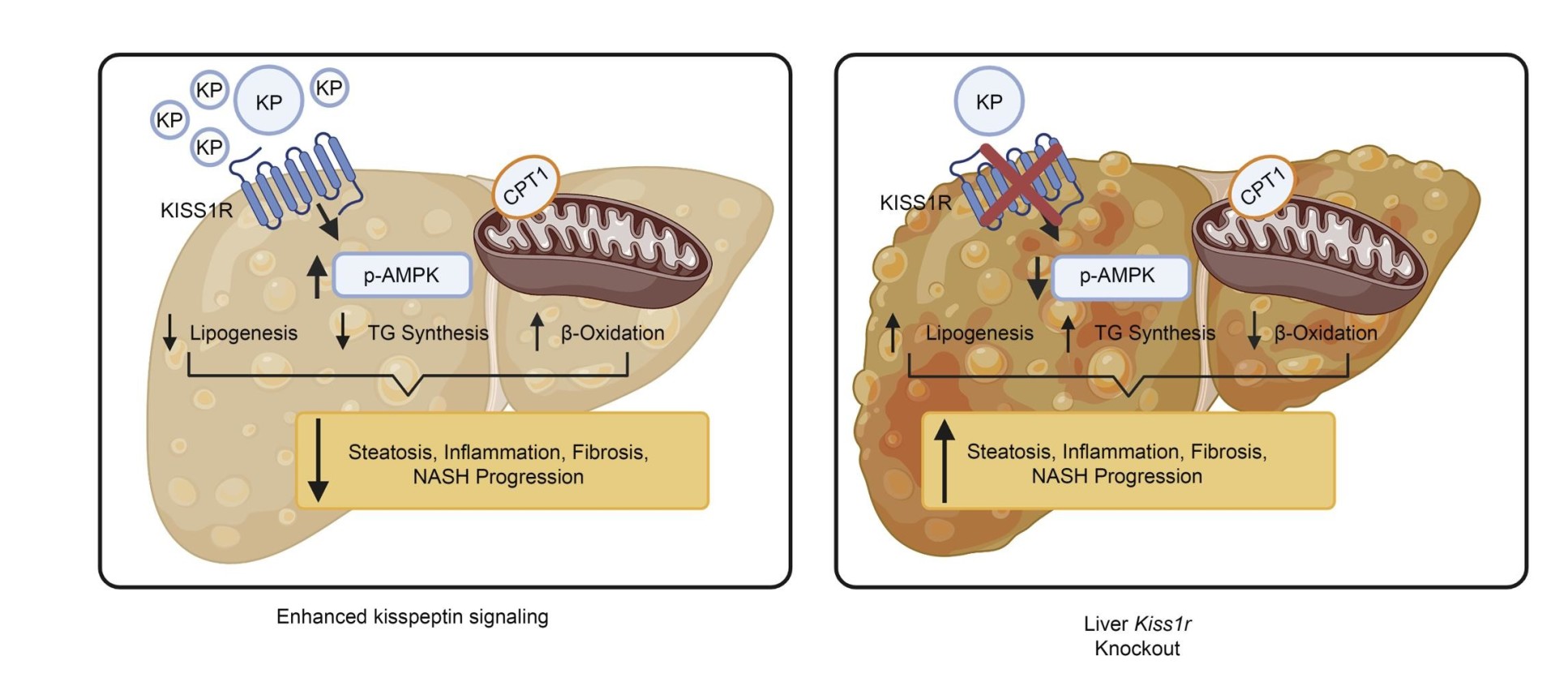Kisspeptin reduces liver damage in non-alcoholic fatty liver disease in mice

New research finds that a hormone previously linked to attraction may have the potential to treat liver disease.
Kisspeptin is a naturally occurring hormone that controls the reproductive system and aspects of metabolism and has previously been shown to enhance brain activity associated with attraction.
Now, researchers have found that targeting receptors for the hormone found in the liver can improve non-alcoholic fatty liver disease in mice.
Scientists from Imperial College London and Rutgers University worked on the joint study to explore whether the hormone kisspeptin could play a part in treating people with Non-alcoholic fatty liver disease (NAFLD) and non-alcoholic steatosis (NASH).
The results of this joint project show that not only does kisspeptin reduce fat in the livers of mice, it also improves liver fibrosis. Professor Waljit Dhillo Head of Diabetes, Endocrinology and Metabolism
Non-alcoholic fatty liver disease is a condition that is linked to obesity and diabetes, and it affects about a quarter of adults in Europe. In some people, NAFLD is more severe with liver inflammation and/or liver fibrosis, known as non-alcoholic steatosis. Currently, there are no specific treatments for this condition, which increases the risk of liver failure, cancer and death.
Researchers from Rutgers University, led by Associate Professor Moshmi Bhattacharya, found that when fed a high-fat high-sugar diet, mice that did not have the kisspeptin receptor (and therefore were unable to respond to kisspeptin) had more fat in their livers than normal mice. By contrast, when kisspeptin was given to mice with NASH for 6 weeks, liver fibrosis and markers of liver damage improved.
Researchers at Imperial carried out studies in patients with NAFLD and NASH, and found that people with NAFLD and/or NASH have higher levels of kisspeptin than people who do not have NAFLD or NASH and people with type 2 diabetes. This might be one way the body tries to deal with liver damage in NAFLD and NASH. The researchers are particularly interested in the potential for kisspeptin to be used as a treatment for NASH.
Study author, NIHR Senior Investigator and Head of Diabetes, Endocrinology and Metabolism at Imeprial, Professor Waljit Dhillo, said: “NASH is currently managed by trying to reduce weight and improve diabetes. Despite these efforts, NASH has become one of the leading causes of liver failure, and there are no licenced medicines available to treat it. Therefore, we need new and effective ways of treating NASH. The results of this joint project show that not only does kisspeptin reduce fat in the livers of mice, it also improves liver fibrosis. In addition, there is a significant difference in liver and blood levels of kisspeptin in patients with NASH compared with people who do not have this condition.”
The next step for the team of researchers is to perform a follow-on study to analyse the effects of kisspeptin in people with different stages of NASH.
Study author Dr Chioma Izzi-Engbeaya, IPPRF Research Fellow in the Department of Metabolism, Digestion and Reproduction, added: “These initial findings are novel and exciting as they indicate that kisspeptin may play a role in improving several key abnormalities in this common liver condition. We are keen to explore whether kisspeptin could be an effective treatment for NASH, and potentially stop some people with NASH from developing liver failure. More studies are needed to investigate the effects of kisspeptin on NASH in diverse populations, as some groups of patients (such as postmenopausal women) have been noted to be more likely to progress to more severe stages of NASH.”

This work was funded by the National Institute for Health Research, the NIHR-Biomedical Research Centre, the Medical Research Council and the National Institutes of Health.
Targeting hepatic kisspeptin receptor ameliorates non-alcoholic fatty liver disease in a mouse model. Stephania Guzman, Magdalena Dragan, Hyokjoon Kwon, Vanessa de Oliveira, Shivani Rao, Vrushank Bhatt, Katarzyna M. Kalemba, Ankit Shah, Vinod K. Rustgi, He Wang, Paul R. Bech, Ali Abbara, Chioma Izzi-Engbeaya, Pinelopi Manousou, Jessie Yanxiang Guo, Grace L. Guo, Sally Radovick, Waljit S. Dhillo, Fredric E. Wondisford, Andy V. Babwah, Moshmi Bhattacharya. Journal of Clinical Investigation. 2022
Article supporters
Article text (excluding photos or graphics) © Imperial College London.
Photos and graphics subject to third party copyright used with permission or © Imperial College London.
Reporter
Benjie Coleman
Department of Surgery & Cancer